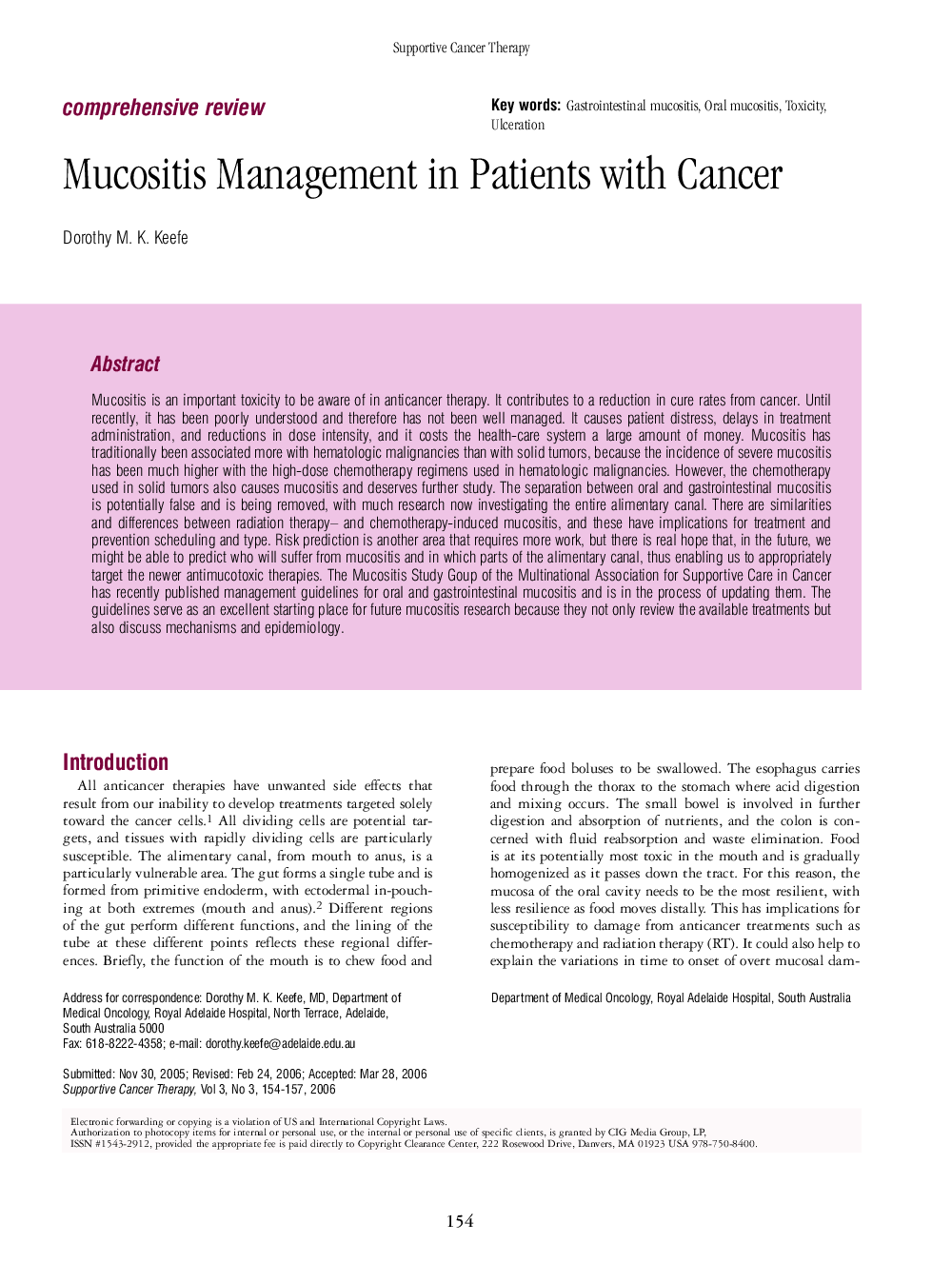| Article ID | Journal | Published Year | Pages | File Type |
|---|---|---|---|---|
| 3997632 | Supportive Cancer Therapy | 2006 | 4 Pages |
Mucositis is an important toxicity to be aware of in anticancer therapy. It contributes to a reduction in cure rates from cancer. Until recently, it has been poorly understood and therefore has not been well managed. It causes patient distress, delays in treatment administration, and reductions in dose intensity, and it costs the health-care system a large amount of money. Mucositis has traditionally been associated more with hematologic malignancies than with solid tumors, because the incidence of severe mucositis has been much higher with the high-dose chemotherapy regimens used in hematologic malignancies. However, the chemotherapy used in solid tumors also causes mucositis and deserves further study. The separation between oral and gastrointestinal mucositis is potentially false and is being removed, with much research now investigating the entire alimentary canal. There are similarities and differences between radiation therapy– and chemotherapy-induced mucositis, and these have implications for treatment and prevention scheduling and type. Risk prediction is another area that requires more work, but there is real hope that, in the future, we might be able to predict who will suffer from mucositis and in which parts of the alimentary canal, thus enabling us to appropriately target the newer antimucotoxic therapies. The Mucositis Study Goup of the Multinational Association for Supportive Care in Cancer has recently published management guidelines for oral and gastrointestinal mucositis and is in the process of updating them. The guidelines serve as an excellent starting place for future mucositis research because they not only review the available treatments but also discuss mechanisms and epidemiology.
